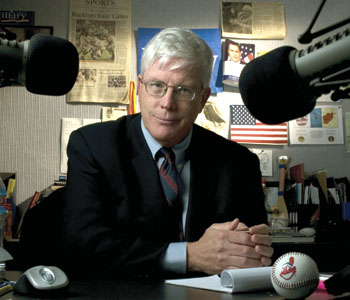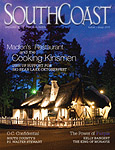How To Use Radio Advertising To Get Known As An Expert

Radio advertising is a great way to get known in your community as an financial expert and promote your upcoming events.
Your ad must lead with a attention grabbing headline to get the listeners’ interest. This keeps them from changing the station or just mentally tuning out.
Beware of letting your ad rep write your ad. Their goal is to sell ads and that’s their main skill. They may or may not be able to write ads which help you. Remember that the ad costs the same regardless of how it performs. You want a “direct response” ad so you know if your ad pays for itself or not. These type of ads include a very simple way for listeners to contact you, like an easy to remember website address or super easy phone number (for example, 334-555-7777). The most effective direct response ads repeat the website address or phone number at least 3 times in the commercial to enhance recall.
The time and cost of producing a radio commercial is far below the cost of producing an equivalent length television commercial. And if an ad doesn’t work you just record another one. Most radio stations include free production as part of your advertising buy, which includes both the copywriting and voiceover assistance.
You must choose your radio station carefully. The listening audience’s demographics must match your target market. Not your taste in music. A great ad on the wrong station won’t build your practice. Look for stations that have a large number of financially qualified listeners; some radio stations can supply you with that specific research data, especially in larger metropolitan areas. You can also reasonably assume that stations that program a format that appeals to an older demographic will in general terms be more likely to utilize a financial planner, as opposed to stations that target listeners in their teens and 20’s. Formats that perform especially well with a more affluent audience of adults over the age of 45 include news, talk, oldies, jazz and classical stations.
Radio consultant and station owner Burke Allen from Allen Media Strategies recommends that you always negotiate with the station account executive. “Electronic media sales reps tend to have quite a bit of flexibility with their per spot rate and placement so don’t accept the first thing that is offered to you.”
The two main categories of radio stations are commercial and noncommercial.
Commercial Radio Stations
Commercial radio stations play all kinds of music which appeals to all ages and social classes. As I mentioned earlier, the demographics of commercial radio vary widely so choose your station wisely.
Radio spots are typically 60 seconds long which is about 250 to 300 words. 60 seconds is plenty of time to create an effective advertisement. Remember to start out strong to keep your listeners attention.
Best to use the radio station staff to record the commercial especially when you’re promoting a seminar or other event. You want to be positioned as a financial expert not a used car salesman. “CFP” does not stand for “Certified Financial Pitchman”!
You can be the star if you use an interview format. You provide valuable information so people see it as a mini-radio show rather than a commercial. They pay attention and don’t change the channel. Here’s a simplified version of a commercial using this format:
- The announcer begins with an introduction of you and your firm. “Time for today’s Money Minute with certified financial planning professional Bob Johnson.” This acts as the headline of the ad.
- The announcer asks you a quick question, “Today’s question is ‘Does a will help me if my husband gets Alzheimer’s?’”
- You provide a clear and concise answer: “No. Wills only go into effect upon death not disability. If your husband was mentally disabled, you would need to go to court to set up a guardianship. This is costly, time-consuming, and embarrassing. Many couples avoid this problem with a living trust.”
- The announcer closes the ad with a call to action, “For a free report on estate planning essentials, call Bob Johnson of Johnson Wealth Management at 555-666-7777.” The announcer should include your USP if time permits. Remember to have them repeat your contact information at least three times to enhance recall.
Noncommercial Radio Stations
Public radio stations tend to program either a News/Talk format or classical/jazz/world music. These formats appeal to older and more affluent audiences. You won’t advertise, of course, you’ll be a “supporter”of noncommercial radio. In recent years, public radio stations have expanded what supporters can say about their businesses. For example:
“Bob Johnson and Johnson Wealth Management support the arts community and Jefferson Public Radio. With systematic planning and proven strategies, Bob Johnson helps families prepare for all stages of life from college savings accounts, to funding a busy and vital retirement, to handling long-term care needs. You can reach Bob in his Medford office at 555-666-7777.”
Listen to your local public radio station and get a feel of what they allow. Don’t be afraid to push the envelope. Somebody has in the past and you might as well push it a bit further. Perhaps they’ll allow a community announcement like this:
“Bob Johnson and Johnson Wealth Management support the arts community and Jefferson Public Radio. On Tuesday, July 5th, Bob Johnson will be holding a community seminar to help individuals and couple learn how to avoid probate and minimize estate taxes. For more details and an invitation, call Bob Johnson in his Medford office at 555-666-7777.”
These underwriter announcements are short and to the point, and are helpful not “salesy”. They work best if recorded by a well-known and well-liked station announcer, but are often read live at public stations.
When should your ads run? Morning and afternoon drive times are the most listened to time on radio, as about 70% of radio listening happens in-car. I helped one advisor who had a 15 minute “Financial Forum” every business day at 8 a.m. This time slot worked great. Another preferred time might be the noon news hour if the station has a large at-work listenership. Not all times are the same in terms of listening levels so try to get the best times possible.
In all cases, ask for a log of when the spots ran along with the spot name if you have several different ads running. You must know which ads are working and which ads need to be dropped. If you run ads on more than one station you may find one station works substantially better than the other. In that case, drop the loser and double-up on the winner.
Advisor Marketing: Magazine Advertising

Your city probably has one or more high-gloss magazines targeting the affluent people in your region. Should you advertise in your region’s magazine? First, you must confirm that the readership of the magazine matches the demographics of your targeted clientele. Does the typical reader sound like someone you’d like to have sit across your desk?
One such magazine in Southern California is South Coast magazine, self-described as the “magazine of the California Riviera.” The magazine states “South Coast readers live in households with a median property value of approximately $950,000 with a median age of 41.5, and a median income of approximately $164,000. Our readers are predominately young, affluent, active, educated, well-traveled professionals, who seek challenge in their lives.”
Home value and income levels are high yet the median age is 41.5. Wonderful if you target professionals. Not so great if you target retirees needing estate planning.
The advantage of magazine ads over newspaper advertising is that magazines often will sit around for a month or two before being tossed in the trash. Newspapers come daily and are quickly tossed. These high-gloss magazines are designed to look good sitting on your coffee table. Which increases the chances of your ad being seen.
This advantage becomes a disadvantage if your ad is a dud. You’ll need to live with your ad for a whole month before you can tweak the headline or change the name of the free report.
What should your ad say? Resist the temptation to create a glitzy image ad showing how wonderful you are. Your ad should offer something of real value to get readers to contact your office. You need their contact information so you can follow-up with them later with your newsletter or e-zine. You could offer a free report on retirement planning pitfalls or an invitation to an upcoming community seminar.
Should you try a one-time test? Someone once said the most popular form of gambling for small businesses is advertising. This is especially true of magazine advertising. Don’t expect to make a big splash with a big full-page ad run one-time. Even a proven ad in a new publication may need time to work. For monthly magazines budget for 3 months and a weekly magazine budget for 4 weeks minimum to give the ad a fair test. Far better to run a quarter-page ad 3 times than a full-page ad just once.
What size ad should you start with? Many magazines have active classified sections in the back of the magazine. You can start with a small classified ad offering a free report. The ad won’t cost much and can easily pay for itself. Gradually increase the size of the ad as long as the ad is paying for itself. You can add a bigger headline and a splash of color to a small display ad to get more attention. Go to a quarter page ad and keep tracking the results. A half-page ad may pull better than a full-page ad. You won’t know if you don’t track the results.
Who should design your ad? Be careful if the magazine offers to design your ad at no cost. The graphic designers probably aren’t skilled in copywriting. Plus they have a tendency to try to design a beautiful ad versus an effective ad. You don’t want to win a design award…you want to win new clients. You want the ad to pay for itself.
Want to get free advertising? Take a look at the magazine and see if they have a financial columnist or not. Offer to write a monthly column in exchange for some display advertising. How much advertising should you ask for? Let’s assume that your hourly rate is $175 per hour and it takes you an average of 3 hours to write an article. You value your articles at $500 each so ask for twice that in free advertising in lieu of payment. If $1000 buys a quarter page ad, you could do a half-page ad every other month.
Magazine ads should be considered when you know the magazine’s readers match your targeted niche, you have proven ads with tested headlines and offers, and you have the budget to test an ad for several issues in a row.
Get Your Own Radio Show For Advisor Marketing Success

Getting a local radio show is a great way to get known in your community as a financial planning expert. Let’s look at the “6 C’s” of having your own radio show:
Contact. A radio show gets you in contact with hundreds or thousands of prospective clients all at once. You build chemistry, establish yourself as an expert and as brave. Not many folks would like to be put on the spot every day or every week. Your clients will enjoy hearing you on the radio and will brag on you so you’ll get more referrals.
Content. Now you’ve gotten a radio show. So what do you talk about? You could do a series of topical shows on various investing and planning areas. You could do a few shows on explaining common investment jargon. You could answer listeners’ questions. The questions could be sent in by email, folks could call your office with questions or you could take them live on air. What do you do if someone asks you a question you can’t answer? No problem, just say, “Great question. Let me do a bit of research and come back tomorrow with a complete answer.” Listeners will appreciate that you admit you don’t know it all. Live Q&A is best and you can do it after you’ve done several shows.
Counsel. You need to give general advice only. You can’t give specific advice because you don’t have the facts of their personal situation. This is a good reason for them to visit you in your office. You also need to be careful not to provide tax or legal advice. Share some air time with your lawyer and CPA and you might see some more referrals down the road.
Controversy. Be especially careful when a listener asks a political question. Your opinion might alienate half your audience. Remember most elections are decided 51% to 49%. Many listeners (and potential clients) will be adamantly opposed to socialism while equally adamant against any cuts to Social Security or Medicare! Emphasize personal responsibility and not wanting to be dependent on the government in your old age. You can take stronger positions when it comes to financial planning matters. Why? Because you are an expert and should know certain planning approaches are better for “most people.” Example, “For most people who own their own home and have over 100,000 in financial assets, estate planning with a living trust is a better option than relying upon a will.”
Cost. Small towns have smaller audiences so the cost is less. One advisor I help pays $1000 per month for a 15 minute Financial Forum show every business day. Another advisor pays $250 per hour for a one-hour weekly show in a big city. In both cases, they get some advertising spots and can cross-promote their seminars and other events.
Communication. You must learn to be clear, concise, and confident when you talk on the radio. Speak in plain English or people will tune you out! And toss in a bit of humor to be more likable and approachable. Imagine you’re speaking to just one person and you’ll be more effective (and less nervous).
How do you get started? Talk to your best clients and find out which radio stations they listen to. Contact these stations and speak with the station manager about starting your own radio show. Whether you do a 3-minute “Money Matters” or a 15-minute or one-hour “Financial Forum”, you can use radio to build chemistry and trust with thousands of people while establishing yourself as an expert in your field.
UPDATE: My friend Burke Allen has over 20 years in PR and the radio industry. He put together a program called Get Your Own Radio Show to help individuals get started in radio.
Get a Website For Advisor Marketing Success
In this short video, Richard Emmons discusses why advisors need to get a website today. Even a basic website allows prospects to find you. Can you imagine not being in the telephone book? You can always improve your website later. For now get something up so people can find you. And not your competitors!
For more information on building a website as part of a systematic marketing program, read Marketing Survival Guide.
Getting Free Publicity with Press Releases

 Financial advisors, like any other business, have two ways to get noticed in newspapers, radio and television. Paid and unpaid.
Financial advisors, like any other business, have two ways to get noticed in newspapers, radio and television. Paid and unpaid.
The advantages of paid advertisements include you can guarantee you’ll be in the paper on the day you want and your control your message. The big disadvantage of paid advertisements is that they cost money! Another disadvantage of paid advertisements is that the readers, listeners, and viewers all know it’s a commercial or an ad.
How do you get unpaid publicity? By submitting press releases which talk about your company and it’s products and services. Now if you ONLY write about yourself, your company and it’s products and services, the “news” will be boring and no news editor will write about it.
Your press releases can result in news articles in two different cases.
First, your company comes out with something that is truly new. For a financial advisor, perhaps it’s a community seminar on a topic all seniors are interested in. This could be on estate planning or dealing with long-term care expenses. You might get mentioned especially if it’s a slow news day.
I wrote a press release for an advisor who held a grand opening for his new building. I knew the write reporter to get it to and followed up with an invitation to the grand opening. The reporter appeared and brought a camera. I gave him a tour and he met the building owner for an interview. Thankfully no one drowned in river and the stock market didn’t crash. So we got front page coverage including a picture of me and the new building! A couple local TV stations sent a camera crew and reporter so we made it on two TV stations 11 o’clock news. This is coverage that money just can’t buy. Done with press releases and some personal follow-up.
The other way to get publicity is to tie you and your company to a local or national story of interest. When Michael Jackson died, the news coverage mentioned he had a living trust. You could promote your expertise in this area to local reporters. You might get called for a quote. Or you could announce your next living trust seminar and tie it back to the news story.
Of course, press releases have two main disadvantages. The paper may not print anything at all. This happens all the time so your time is largely wasted. You can put a “Press Release” page on your website and post all your press releases. Your press releases will help your rankings on Google and give your readers more information about your company.
Or they include the information and change the story to fit the editor’s desired angle. Or they might make a typographical error.Once, I sent a press release for a marketing seminar I was holding at 7 in the morning. The paper printed my press release word-for-word with one little exception. It showed the time as 7 pm. Guess what? I held the seminar at 7 pm because the paper was the main form of publicity.
When should you submit your press release? For newspapers, try to fax or email it in a week before your event. Television works on a shorter news cycle so 3 days in advance is plenty.
Like so much of marketing, you need to make a consistent, sustained, and purposeful effort with press releases. Set a goal of sending out one press release per month. You’ll find it becomes easier as you do it more often. You’ll get known to news editors and this can result in them calling you. This might result in a new client or two and will help you establish yourself as an expert in your field.
